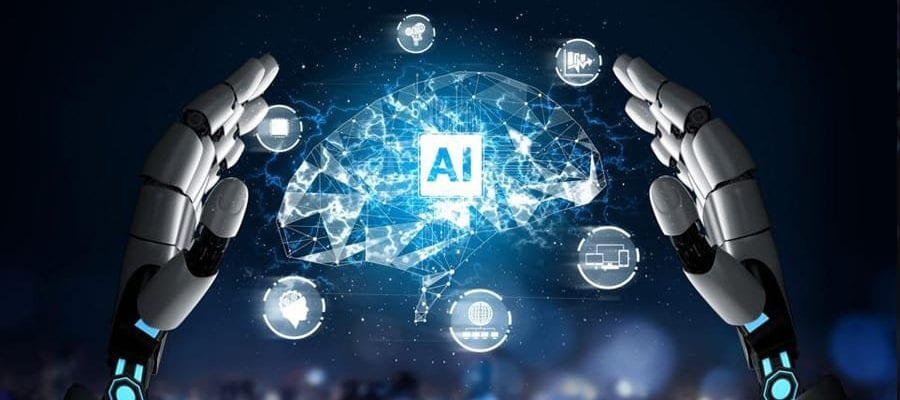By: Brenna Ryder
A Virginia federal judge ruled that artificial intelligence (“AI”) cannot be listed as an inventor on a patent application, the first U.S. ruling of its kind. U.S. District Judge Leonie Brinkema (“Brinkema”) held in Thaler v. Hirshfeld that only a human person can be an inventor under U.S. law.
Artificial Technology (“AI”), uses a machine to perform steps that mimic the work of a human mind, but at significantly faster speeds. Ryan Abbott (“Abbott”), a law professor at the University of Surrey, launched a global effort called the Artificial Inventor Project, to get a computer listed as an inventor. As part of this effort, Stephen Thaler (“Thaler”), founder of Imagination Engines Inc., built a machine whose main purpose was to invent. Thaler created his AI machine, called Device for the Autonomous Bootstrapping of Unified Sentience (“DABUS”), to invent a beverage container and a “device for attracting enhanced attention.”
Abbott and his team filed applications in seventeen jurisdictions around the world, listing DABUS as the inventor. The U.S. Patent and Trademark Office (“USPTO”), rejected the applications for failure to list a person as the inventor. Thaler appealed to the district court, arguing that listing AI as an inventor is consistent with both the language and purpose of the Patent Act.
The case presented the issue of whether or not the Patent Act requires that an “inventor” be a human being. This issue is a question of statutory construction, and therefore, the plain language of the statute controls. The Patent Act provides an explicit statutory definition of the term “inventor”: “the individual, or, if a joint invention, the individuals collectively who invented or discovered the subject matter of the invention.” In her holding, Brinkema noted that both the dictionary and legal definition of “individual” is a natural person. She pointed to the fact that the Patent Act uses the term “individual” as a noun, and to several Supreme Court cases where the Court routinely uses “individual” to denote a natural person. Furthermore, federal law requires that an “individual” take an oath that he or she is the inventor on a patent application, or to submit a “substitute statement” to the USPTO “in lieu of” the oath or declaration.
In her ruling, Brinkema cited U.S. Court of Appeals for the Federal Circuit holdings rejecting the idea of a corporation being an inventor, and holding consistently that under current patent law, “inventors must be natural persons.” Brinkema relied on Univ. of Utah v. Max-Planck and Beech Aircraft Corp. v. Edo Corp. in her holding that inventors must be natural persons, as only natural persons support the plain meaning of “individual” in the Patent Act. Abbott and his team plan to appeal Brinkema’s judgment, as well as judgments they lost before the U.K. and European patent offices.
This ruling has two clear impacts on the development of AI in the United States. First, this holding may discourage the development of AI in the United States in general, as inventors may not want to invest their time in developing technologies that will not receive patent protection. Abbot and his team argue that “allowing patents for AI-Generated Inventions will result in more innovation. It will incentivize the development of AI capable of producing patentable output by making that output more valuable.” If this holding stands as an example of U.S. court rulings to come, denying patent protection for AI-generated inventions may fail to encourage the production of valuable technological inventions. Second, as this decision diverges from the findings of courts in Australia and South Africa, which ruled in Thaler and Abbott’s favor, this holding is discouraging to U.S. inventors, who will only be able to receive patent protection outside of the United States. This may encourage inventors to transfer the development of these technologies offshore.
Though these are strong policy arguments, Brinkema notes in her opinion that “policy considerations cannot overcome a statute’s plain language, and that ‘matters of policy are for Congress, not the courts, to decide.’” Fortunately, the USPTO is continuing to study the impact of AI on current patent regulations, and held a conference on AI policy in January 2019. At this conference, the USPTO made a request for public comment on the “intersection of intellectual property policy and artificial intelligence.” In October 2020, the USPTO issued a report on the findings of that request which showed that many commentators disagreed with Thaler and Abbott’s view that artificially intelligent machines should be recognized as inventors. The majority of comments suggested that human beings remain an integral part to the operation of AI, suggesting that current AI technologies could neither invent nor author without human intervention.
Thaler v. Hirshfield offers a first look into the impact of AI on intellectual property policy in the United States. Though strong policy arguments can be made suggesting that holdings of this kind may push U.S. AI inventors to invent elsewhere or stall their efforts completely, current AI technology is not developed enough to allow for AI machines to be listed as inventors on patent applications. As AI technology becomes more advanced and less dependent on human intervention, the accepted meaning of “inventor” may need to adapt. If that time arrives, it will be up to Congress to decide how to expand the scope of patent law, if at all.
Student Bio: Brenna Ryder is a third-year evening student at Suffolk University Law School. She is a staffer on the Journal of High Technology Law. Brenna received a Bachelor of Science Degree in Business Administration and Management, with concentrations in Management Information Systems and Business Law, from Boston University’s Questrom School of Business.
Disclaimer: The views expressed in this blog are the views of the author alone and do not represent the views of JHTL or Suffolk University Law School.

